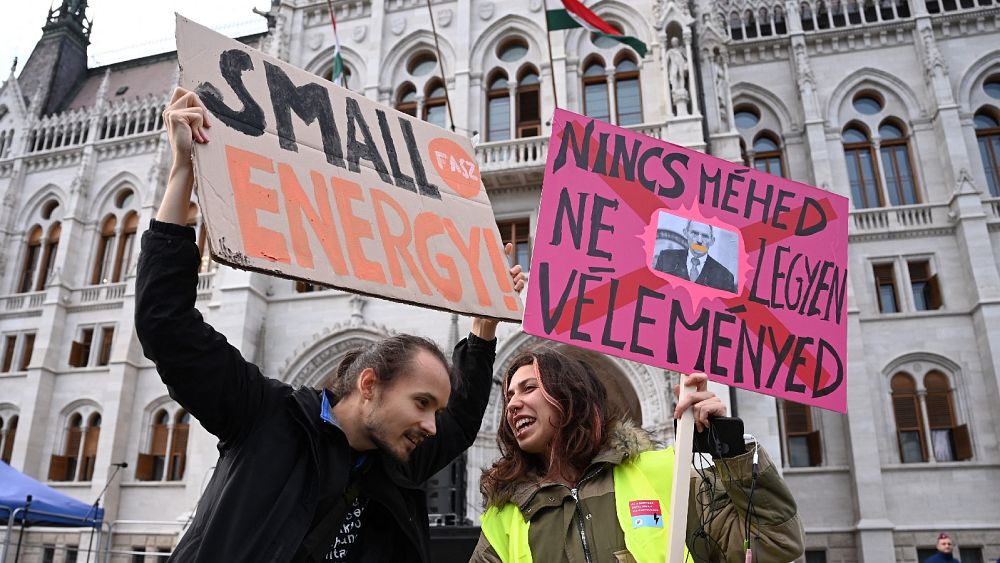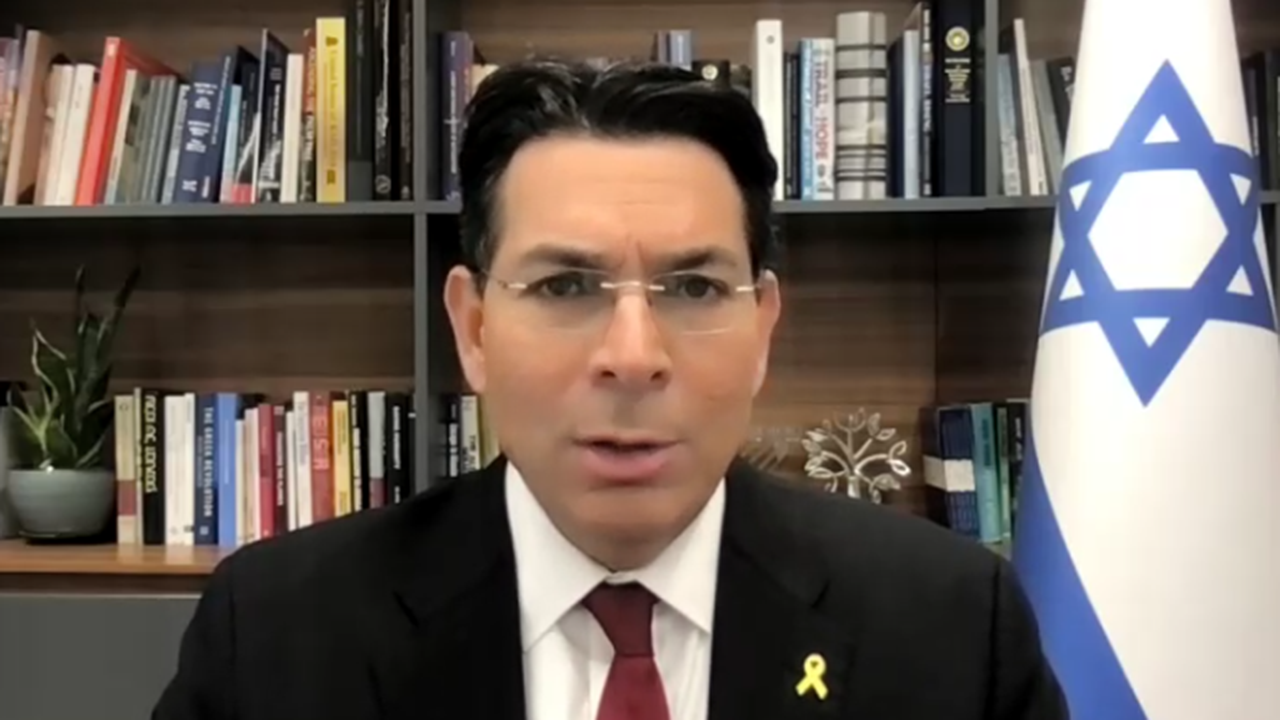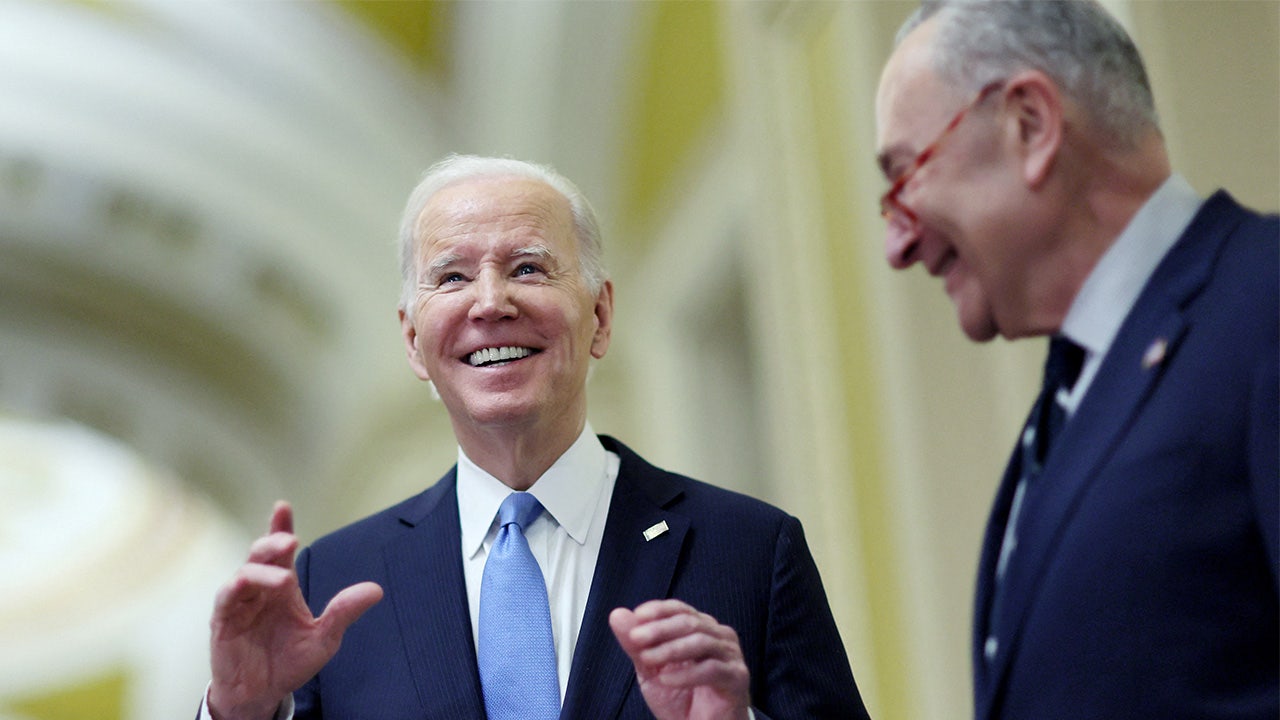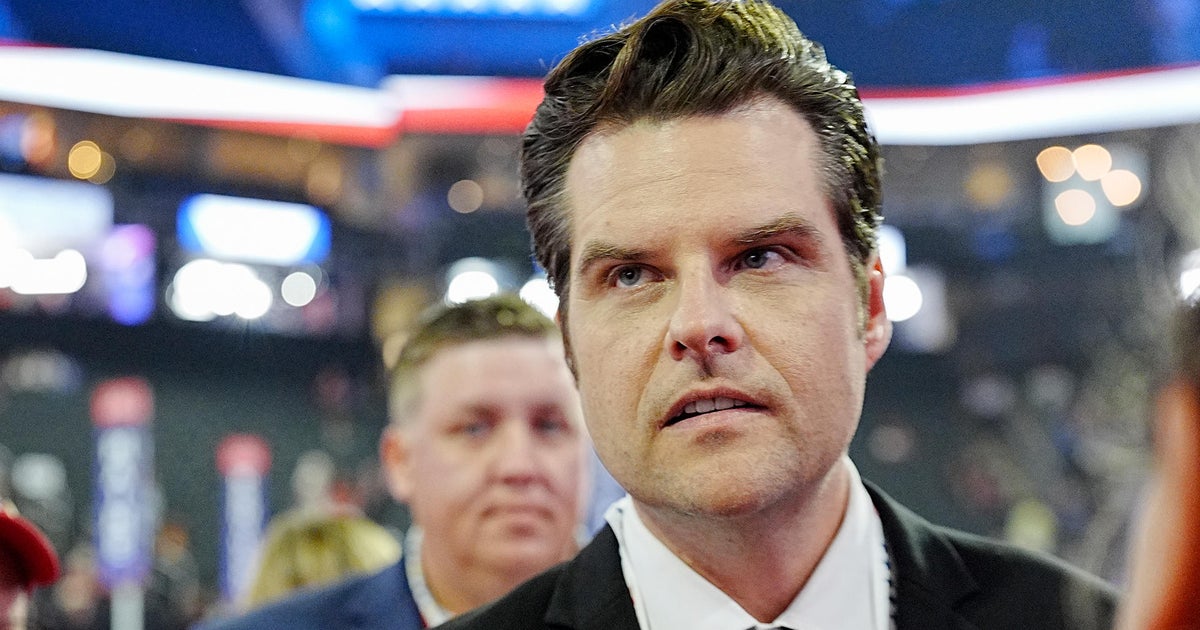World
Why do dozens of Hungarian women have abortions in Austria each week?

Abortions are legal in Hungary but humiliating treatment and waiting lists prompt women to terminate their pregnancy outside of the country, women and experts told Euronews. Their main destination is Austria.
“I was sure I didn’t want to go through this procedure in Hungary,” Adri, 32, who asked to be identified only by her first name, says. She lives in an agglomeration of Budapest, works as a life coachand raises her son alone. She got pregnant again, two years ago, and decided to get an abortion.
Surgical abortions are legal until the 12th week in Hungary but women are required to attend two mandatory meetings with a state service. The first one is to inform them of other opportunities, including adoption, Réka Lebedi, a lawyer at Hungarian Civil Liberties Union (TASZ), a human rights NGO, explained. The second’s purpose is to inform them of the dangers of the surgery.
According to Lebedi, two problems arise with these consultations: “These family protection services are incredibly busy,” she said, which can lead to women running out of time. “And through our partners, we know that the intonation at these counsellings can be degrading towards the women.”
Adri, who, in her own words, experienced systematic abuse during her divorce “didn’t want to expose (herself) to further abuse.” So she booked herself into an Austrian clinic a friend recommended.
Ten to 15 women every week
“There is no law in Hungary that would clearly ban travelling for (an abortion),” Lebedi said.
Christian Fiala, a gynaecologist at the Gynmed clinic in Vienna, says the facility administers abortions to ten to 15 Hungarian women every week. Gynmed is only one of the multiple clinics that pop up on the first page of a Google search. A similar number of women attend Women and Health, another clinic, Alexandra Kovács, a customer service representative told Euronews.
Women and Health has a website in Hungarian, Russian and Polish too. Kovács, a German-Hungarian currently living in Vienna, attends to Hungarian clients and has spoken to hundreds of women, sometimes three a day.
“Many choose us instantly because they don’t even want to go through (the Hungarian system),” she said. That is despite the price.
In these clinics, the cost of an abortion is between €500-600, excluding travel, half Hungary’s average monthly pay. Abortions in Hungary cost €100.
The slow curbing of rights
Over the past decade, multiple laws have been passed that dampen access to abortion in Hungary.
The constitution was amended in 2012 with a paragraph according to which “the foetal life has to be protected from the conception”, which has been used to undermine women’s rights.
Last September, Prime Minister Viktor Orbán’s nationalist Fidesz party, curbed abortion rights further with a “heartbeat law” requiring women to listen to a pulse generated by the ultrasound monitor, misleadingly dubbed the foetal heartbeat, before making the decision to abort.
Still, the number of abortions administered since September has risen by up to 15% in some areas, reports say.
According to Fiala, the “highly unethical” practice of making the woman listen to the heartbeat is nothing new despite having been enshrined in law last year.
“For many years, I have been infuriated by the stories of women who told me their doctors made them listen to this so-called heartbeat,” the Vienna-based doctors told Euronews.
Emily, a Budapest-based professional who asked to remain anonymous, was 24 when she got an abortion, just a few days before the Hungarian parliament passed the controversial law.
She discovered her pregnancy in its 5th week. The doctor at a private clinic told her to come back in 2 weeks and listen to the heartbeat, Emily says. “She didn’t even ask if it was planned.”
Calling family protection services, she was told she would have to wait over a month for the abortion due to the long waiting list. So she decided to opt for a clinic in Vienna, that she found in a Google search.
Emily, like Adri, decided for medical abortion, legal in Austria until the 9th week, and administered in most European countries since the early 2000s.
In Hungary, this practice has been illegal since 2012. Only surgical abortions are allowed, despite the severe lack of doctors in the country, which results in hospital wings, including maternity units, shutting down around the country and long waiting lists.
This, Fiala said, was “a political decision.”
“All Western European countries think it’s a very good and safe treatment. But (Viktor Orbán) wants to force women to put as many children in the world as possible,” he said.
International comparison
The abortion system also affects refugees living in Hungary, according to a recent report by the Center for Reproductive Rights.
The report by the global advocacy organisation highlights that many Ukrainian women who fled the war and settled in Hungary or Poland have no choice but to “travel back to Ukraine for abortion care” so that they can order “abortion medication online from telemedicine services”. Otherwise, they have to travel to other European countries to seek care.
In Poland, the ruling conservative populist Law and Justice party (PiS)’s anti-abortion measures, implemented in early 2021, banned terminations even in cases of pregnancies with foetal defects. This de-facto ban on abortions sparked mass protests around Poland and Europe.
“Hungary’s legal abortion regulations are fine compared to (that). At least on paper. But the way they are implemented in practice is completely wrong,” Krisztina Les, a social worker at Patent, a Hungarian women’s rights organisation, told Euronews.
Based in Budapest, Patent helps 35-40 Ukrainian women per month in accessing abortion and other sexual and reproductive health-related services, Les says.
“Compared to Western Europe, the situation in Hungary is troublesome,” Les says. If they could, they would stop the practice of obligatory consultation but they are wary of asking for anything.
“Due to the ongoing communication of the current government, we can only imagine the laws tightening.”

World
Jon Hamm’s Your Friends & Neighbors Renewed at Apple TV+ Ahead of Series Premiere — Get Release Date

ad
World
Israel keeping its ‘eyes open’ for Iranian attacks during Trump transition period, ambassador says

Israel’s U.N. Ambassador Danny Danon tells Fox News Digital that his country is keeping its “eyes open” for any potential aggression from Iran during the Trump transition period, adding it would be a “mistake” for the Islamic Republic to carry out an attack.
The comments come after Iranian Foreign Minister Abbas Araghchi vowed earlier this week that Iran would retaliate against Israel for the strategic airstrikes it carried out against Tehran on Oct. 26. Araghchi was quoted in Iranian media saying “we have not given up our right to react, and we will react in our time and in the way we see fit.”
“I would advise him not to challenge us. We have already shown our capabilities. We have proved that they are vulnerable. We can actually target any location in Iran. They know that,” Danon told Fox News Digital.
“So I would advise them not to make that mistake. If they think that now, because of the transition period, they can take advantage of it, they are wrong,” he added. “We are keeping our eyes open and we are ready for all scenarios.”
ICC REJECTS ISRAELI APPEALS, ISSUES ARREST WARRANTS FOR BENJAMIN NETANYAHU, YOAV GALLANT
Israel’s U.N. Ambassador Danny Danon tells Fox News Digital that his country is “ready for all scenarios” coming from Iran during the Trump transition period. (Fox News)
Danon says he believes one of the most important challenges for the incoming Trump administration will be the way the U.S. deals with Iran.
“Regarding the new administration, I think the most important challenge will be the way you challenge Iran, the aggression, the threat of the Iranian regime. I believe that the U.S. will have to go back to a leading position on this issue,” he told Fox News Digital.
“We are fighting the same enemies, the enemies of the United States of America. When you look at the Iranians, the Houthis, Hezbollah, Hamas, all those bad actors that are coming against Israel… that is the enemy of the United States. So I think every American should support us and understand what we are doing now,” Danon also said.
IRAN HIDING MISSILE, DRONE PROGRAMS UNDER GUISE OF COMMERCIAL FRONT TO EVADE SANCTIONS

Rep. Elise Stefanik, R-N.Y., is acknowledged by President-elect Donald Trump alongside Speaker of the House Mike Johnson during a meeting with House Republicans at the Hyatt Regency hotel in Washington, D.C., on Nov. 13, 2024. Stefanik has been chosen by President-elect Donald Trump as the next U.S. ambassador to the United Nations. (Allison Robbert/Pool via REUTERS)
Danon spoke as the U.S. vetoed a draft resolution against Israel at the U.N. Security Council on Wednesday.
The resolution, which was overseen by Algeria, sought an “immediate, unconditional and permanent cease-fire” to be imposed on Israel. The resolution did not guarantee the release of the hostages still being held by Hamas within Gaza.

Israeli Air Force planes departing for the strikes in Iran on Oct. 26. (IDF Spokesman’s Unit)
“It was a shameful resolution because… it didn’t have the linkage between the cease-fire and the call [for] the release of the hostages. And I want to thank the United States for taking a strong position and vetoing this resolution,” Danon said. “I think it sent a very clear message that the U.S. stands with its strongest ally with Israel. And, you know, it was shameful, too, to hear the voices of so many ambassadors speaking about a cease-fire but abandoning the 101 hostages. We will not forget them. We will never abandon them. We will continue to fight until we bring all of them back home.”
Fox News’ Benjamin Weinthal contributed to this report.
World
Fact-check: What do we know about Russia’s nuclear arsenal?

Moscow has lowered the bar for using nuclear weapons and fired a missile capable of carrying a nuclear warhead into Ukraine, heightening tensions with the West.
Russia’s nuclear arsenal is under fresh scrutiny after an intermediate-range ballistic missile capable of carrying an atomic warhead was fired into Ukrainian territory.
President Vladimir Putin says the unprecedented attack using the so-called “Oreshnik” missile is a direct response to Ukraine’s use of US and UK-made missiles to strike targets deep in Russian territory.
He has also warned that the military facilities of Western countries allowing Ukraine to use their weapons to strike Russia could become targets.
The escalation comes days after the Russian President approved small but significant changes to his country’s nuclear doctrine, which would allow a nuclear response to a conventional, non-nuclear attack on Russian territory.
While Western officials, including US defence secretary Lloyd Austin, have dismissed the notion that Moscow’s use of nuclear weapons is imminent, experts warn that recent developments could increase the possibility of nuclear weapons use.
Here’s what we know about Russia’s inventory of atomic weapons.
How big is Russia’s nuclear arsenal?
Russia holds more nuclear warheads than any other nation at an estimated 5,580, which amounts to 47% of global stockpiles, according to data from the Federation of American Scientists (FAS).
But only an estimated 1,710 of those weapons are deployed, a fraction more than the 1,670 deployed by the US.
Both nations have the necessary nuclear might to destroy each other several times over, and considerably more atomic warheads than the world’s seven other nuclear nations: China, France, India, Israel, North Korea, Pakistan and the United Kingdom.
Of Moscow’s deployed weapons, an estimated 870 are on land-based ballistic missiles, 640 on submarine-launched ballistic missiles, and potentially 200 at heavy bomber bases.
According to FAS, there are no signs Russia is significantly scaling up its nuclear arsenal, but the federation does warn of a potential surge in the future as the country replaces single-warhead missiles with those capable of carrying multiple warheads.
Russia is also steadily modernising its nuclear arsenal.
What could trigger a Russian nuclear response?
Moscow’s previous 2020 doctrine stated that its nuclear weapons could be used in response to an attack using nuclear or other weapons of mass destruction “when the very existence of the state is put under threat.”
Now, the conditions under which a nuclear response could be launched have changed in three crucial ways:
- Russia will consider using nuclear weapons in the case of a strike on its territory using conventional weapons, such as cruise missiles, drones and tactical aircraft.
- It could launch a nuclear attack in response to an aggression by a non-nuclear state acting “with the participation or support of a nuclear state”, as is the case for Ukraine.
- Moscow will also apply the same conditions to an attack on Belarus’ territory, in agreement with President Lukashenko.
Is there a rising nuclear threat?
The size of the world’s nuclear stockpiles has rapidly decreased amid the post-Cold War détente. The Soviet Union had some 40,000 warheads, and the US around 30,000, when stockpiles peaked during the 1960s and 70s.
But FAS warns that while the overall number is still in decline, operational warheads are on the rise once again. More countries are also upgrading their missiles to deploy multiple warheads.
“In nearly all of the nuclear-armed states there are either plans or a significant push to increase nuclear forces,” Hans M. Kristensen, Director of the Nuclear Information Project at the Federation of American Scientists (FAS), said in June this year.
Is the West reacting?
When Putin approved the updated nuclear protocol last week, many Western leaders dismissed it as sabre rattling.
German Foreign Minister Annalena Baerbock said Germany and its partners would “not be intimidated” and accused Putin of “playing with our fear.”
But since Russia used a hypersonic ballistic missile capable of carrying a nuclear warhead in an attack on Dnipro, European leaders have raised the alarm.
“The last few dozen hours have shown that the threat is serious and real when it comes to global conflict,” Polish Prime Minister Donald Tusk said on Friday.
According to Dutch media reports, NATO’s secretary-general Mark Rutte is in Florida to urgently meet President-elect Donald Trump, potentially to discuss the recent escalation.
NATO and Ukraine will hold an extraordinary meeting in Brussels next Tuesday to discuss the situation and the possible allied reaction, according to Euronews sources.
-
Business1 week ago
Column: OpenAI just scored a huge victory in a copyright case … or did it?
-

 Health1 week ago
Health1 week agoBird flu leaves teen in critical condition after country's first reported case
-

 Business6 days ago
Business6 days agoColumn: Molly White's message for journalists going freelance — be ready for the pitfalls
-
World1 week ago
Sarah Palin, NY Times Have Explored Settlement, as Judge Sets Defamation Retrial
-

 Science3 days ago
Science3 days agoTrump nominates Dr. Oz to head Medicare and Medicaid and help take on 'illness industrial complex'
-

 Politics5 days ago
Politics5 days agoTrump taps FCC member Brendan Carr to lead agency: 'Warrior for Free Speech'
-
/cdn.vox-cdn.com/uploads/chorus_asset/file/25739950/247386_Elon_Musk_Open_AI_CVirginia.jpg)
/cdn.vox-cdn.com/uploads/chorus_asset/file/25739950/247386_Elon_Musk_Open_AI_CVirginia.jpg) Technology4 days ago
Technology4 days agoInside Elon Musk’s messy breakup with OpenAI
-

 Lifestyle5 days ago
Lifestyle5 days agoSome in the U.S. farm industry are alarmed by Trump's embrace of RFK Jr. and tariffs


















